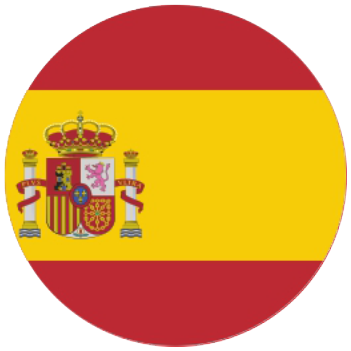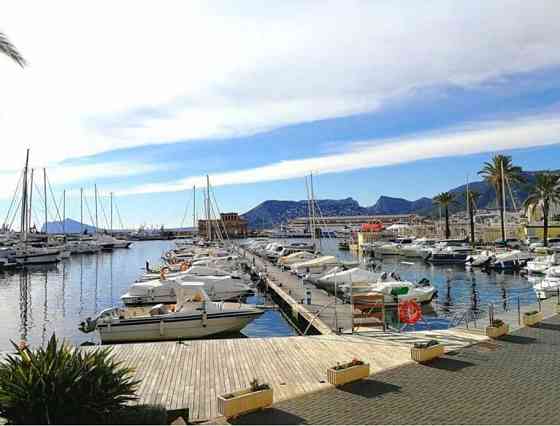
Madrid is going for unprecedented measures: ban on short-term rentals and new rules for the tourism industry
In recent years, Madrid, like many other popular tourist destinations, has faced serious problems caused by the rapid growth of mass tourism. The surge in arrivals, the growing demand for short-term rentals and the commercialization of the city's central areas have threatened the quality of life of local residents. However, Madrid's city authorities have decided to take unprecedented measures to regain control of the situation and ensure the sustainable development of the capital.
The ban on short-term rentals is a solution to a long-standing problem. At the center of these revolutionary changes is the ban on short-term rentals announced by Mayor José Luis Martínez-Almeida. The decision is part of a broader strategy to regulate the real estate market and manage urban development in Madrid. The problem of the rapid growth of short-term rentals, mainly through popular online platforms, has become one of the most painful topics in the city. Many locals have expressed concern about the displacement of indigenous people from central areas, the transformation of residential neighborhoods into a kind of “tourist ghettos” and rising rents that make housing unaffordable for a large part of the city's residents.
Rejection of mass tourism
It is important to note that the ban on short-term rentals is only one of a number of measures aimed at addressing the problems associated with mass tourism in Madrid. City authorities are aware of the need for a comprehensive approach to regulating the tourism industry and maintaining a balance between its development and the needs of local residents. In this regard, the new regulations also include restrictions on the conversion of residential premises into commercial facilities such as mini-hotels or hostels. This measure is intended to prevent further commercialization of residential areas and preserve their authentic character.
Public and stakeholder reaction
As might be expected, the decision to ban short-term rentals elicited mixed reactions among various stakeholders. Representatives of the tourism industry have expressed serious concerns about the possible negative effects on the city's economy and the decline in tourist traffic. Some fear that the measures could damage Madrid's reputation as a welcoming and attractive city to visit.
Impact on homeowners
However, the biggest impact of the innovations will be on property owners who used their apartments and houses for short-term rentals. For many of them, this was a significant source of income to cover the cost of maintaining their homes or even was their main income. Some property owners fear that the ban on short-term rentals will reduce the value of their properties and limit their ability to capitalize on their assets. They are also concerned that the new rules could lead to an increase in illegal and unregulated rentals, creating additional problems.
Understanding the complexity of the situation, Madrid city officials stress that the new rules will be introduced gradually to minimize the negative effects on all stakeholders. Mayor Martinez-Almeida said that the municipality intends to work closely with representatives of the tourism industry, property owners and local residents to develop the most effective approach to the implementation of the new policy. There are plans to develop special support programs and transition periods for owners whose operations will be affected by the ban. Mechanisms will also be put in place to enforce the new rules and combat illegal rentals.
A balanced approach to tourism development
Despite criticism from some market players, many local residents and activists have welcomed the decision by city authorities to introduce restrictions on short-term rentals. They see it as an important step towards a more balanced and sustainable urban development. It must be understood that tourism remains a vital sector of Madrid's economy. However, too rapid and uncontrolled growth in mass tourism can lead to negative consequences, such as an increase in the cost of living, loss of authenticity of local communities and a deterioration in the quality of life of local residents. Therefore, the new measures are aimed at finding the right balance between the development of the tourism industry and preserving the unique character of Madrid, attractive not only to tourists but also to the citizens themselves. Experts note that Madrid's experience can become a valuable example for other cities trying to cope with similar challenges.
Install our app and get all the tools you need to search for real estate abroad in your smartphone! The mobile application will allow you to quickly access your personal account, manage your favorite properties and track your requests, directly exchange messages with sellers and buyers.

The road to sustainable urban development
The ban on short-term rentals in Madrid is part of a broader global trend to rethink approaches to urban planning and development. A growing number of cities around the world are facing the challenges of mass tourism, a shortage of affordable housing and the displacement of local populations from central areas. Awareness of these challenges has led to the realization of the need for an integrated and sustainable approach to urban management that takes into account the long-term interests of all residents and ensures the balanced development of urban communities. The era of uncontrolled growth and commercialization of the urban environment is coming to an end. It is being replaced by a new paradigm centered on the idea of creating cities that are livable and able to maintain their identity despite tourist flows and economic changes.
Lessons from the pandemic and new priorities
The COVID-19 pandemic also contributed to rethinking the role of tourism in urban life. The sharp decline in tourism activity during the period of lockdowns and restrictions demonstrated how heavily some cities depend on this industry. This highlighted the need to diversify urban economies and reduce dependence on tourism. At the same time, the pandemic reminded the importance of affordable housing, quality public spaces, and the opportunity to live a healthy lifestyle in urban settings. These factors have become new priorities for many city administrations, and this has been reflected in their development strategies.
Conclusions:
Madrid's decision to ban short-term rentals was a landmark event reflecting a global trend to rethink approaches to urban development. This unprecedented move has met with mixed reactions, raising concerns from the tourism industry, but being welcomed by local residents and activists. However, the main significance of this initiative is that it demonstrates a growing awareness of the need to find a balance between tourism development and preserving the quality of life of citizens. For too long, cities have sacrificed the interests of their communities to attract tourists and make short-term profits.
The COVID-19 pandemic was a catalyst that accelerated this process of rethinking priorities. Many cities realized their overdependence on tourism and the need to diversify their economies. In addition, lockdowns and restrictions on movement have reminded of the value of affordable housing, public spaces and healthy urban living. Madrid's initiative is part of a broader trend towards a paradigm shift towards sustainable and balanced urban development. It is based on the idea of creating cities that are oriented to the needs of their inhabitants, capable of maintaining their unique identity and providing a high quality of life despite tourist flows and economic changes.
To achieve this goal, city authorities should actively use modern technologies and innovative solutions, such as smart resource management systems, big data analysis and environmentally friendly building materials. However, it is equally important to involve local communities in decision-making processes and take into account their needs and suggestions. The path to truly sustainable urban development requires an integrated approach that integrates economic, social and environmental aspects. It is a long-term task that will require continuous efforts and adaptation to changing conditions. But the experience of Madrid and other cities on this path shows that such ambitious goals are achievable. And while the transition to a new paradigm may be difficult and may provoke resistance from certain interest groups, it will ultimately benefit all citizens, providing them with a better quality of life and preserving a unique urban identity.
The decision to ban short-term rentals in Madrid was an important milestone on this path. It demonstrated the city's willingness to take bold and decisive steps to achieve its goals. While much remains to be done, this step gives hope that the cities of the future can find the right balance between economic development and preserving their identity, ensuring prosperity and a high quality of life for all their inhabitants.
 Real Estate in Spain
Real Estate in Spain

Spain continues to hold a leading position in the overseas property market, attracting investors from all over the world with record demand, steady growth and unique opportunities for income and residence. The material contains all about the main trends, current figures, new opportunities and difficulties for foreign buyers.

The Spanish real estate market continues to grow rapidly, especially in the new-build segment. Madrid, Malaga and Valencia are leading in terms of construction volumes, but housing prices are becoming less and less affordable for the majority of the population. Let's look at the reasons for this phenomenon and the prospects for investors and buyers.

Spain is preparing to introduce serious restrictions for foreign buyers of real estate who are not residents of the European Union. The government plans to raise taxes, establish a residency requirement and cancel the “golden visa” program for investors. Experts predict a decrease in the inflow of foreign capital into the housing market.









 42
42  1
1  1
1  3
3 





